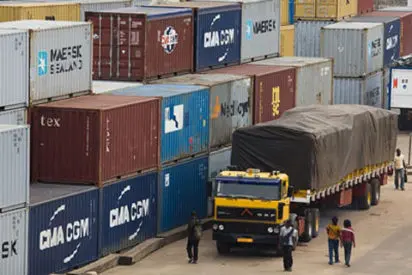ICNL laments 300% transport cost rise
The Managing Director of Inland Container Nigeria Limited, Mr Ismail Yusuf, has said that the firm recorded a 300 per cent increase in the cost of transportation due to the unavailability of a rail connection to the hinterlands, as it lost N18bn on transportation in 2022.
Yusuf, who said this in a chat with journalists recently in Lagos, said the company handled an average of 15, 000 twenty-foot equivalent containers in 2022.
Explaining further, he said that if the rail line was working the way it should, the firm would not have spent more than N9bn to transport that number of containers.
He added that the company spent three times above what they would have spent in handling the containers.
“We did an average of 15,000TEUs in 2022. If the rail had been working, this wouldn’t have cost us more than about N9bn per annum. But now that train is not working, we use the roads, which cost 3 times more, amounting to about N27bn. This is because rail takes N600,000 per container or per wagon, while the truck takes N1.8m.
So, that is about a 300 per cent increase and N18bn lost just only on transportation, which is for my company alone. When you aggregate that with that of other companies doing the same business, then you can imagine the billions that have been lost due to the non-functioning of the rail,” he asserted.
Yusuf said that the dry port had yet to adopt the modern way of operating dry port.
“We have a lot of teething problems. The first is the recognition of the dry port as a port of destination and origin. The modern way of operating the dry port has not yet been there and because we are the first to come on board, we are the only ones facing that challenge now.
“By the time others come to the limelight, they will face the same challenges we are facing but it will become easier for them to solve them because we are the ones creating ways for others to follow. So, we are the pacesetter,” he added.
He said that the Federal Government has a lot to do regarding the bill of laden.
“The second issue is that the shipping lines need to buy into the FG’s reasons for establishing the dry port in the country because they are the ones that can make it work in the sense that the through bill of laden is issued by shipping lines and when that is done from the port of origin, the seaport here would be a transit point.
On examination, nothing like documentation will be done; this is because the containers are in transit to a dry port and arrangements will be made by the shipping lines to transfer them either by road or rail to that particular dry port, from where the customers/agents will come and clear their goods to their different warehouses.
“But that is not in place yet, which is why I said that FG through the shipper’s council has a lot to do concerning the bill of laden.”








